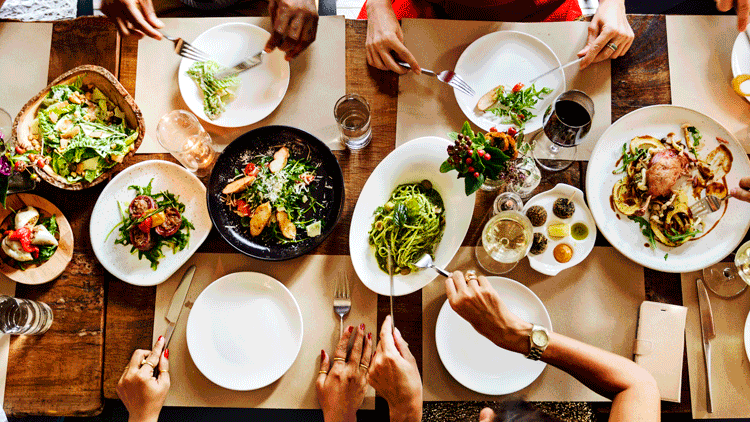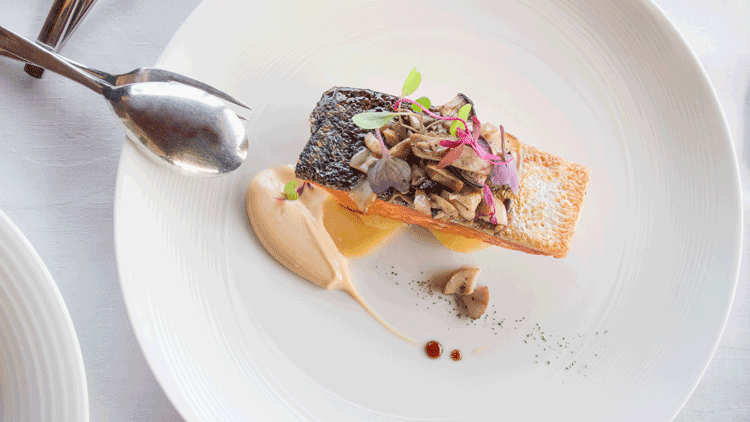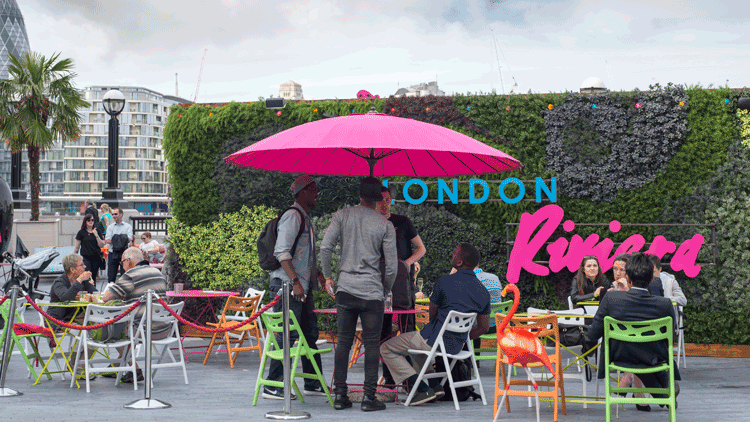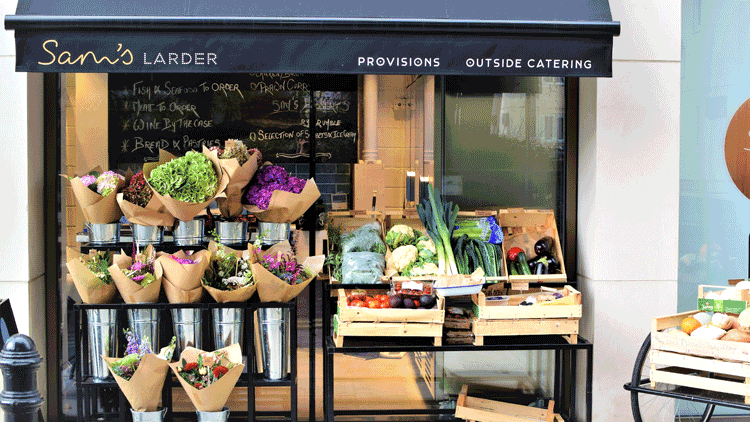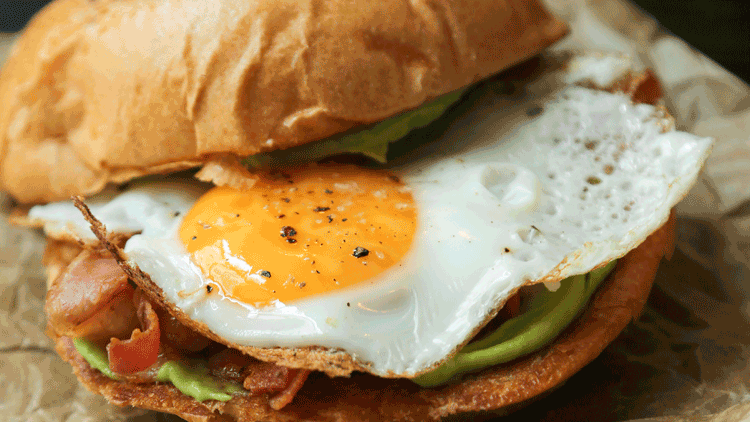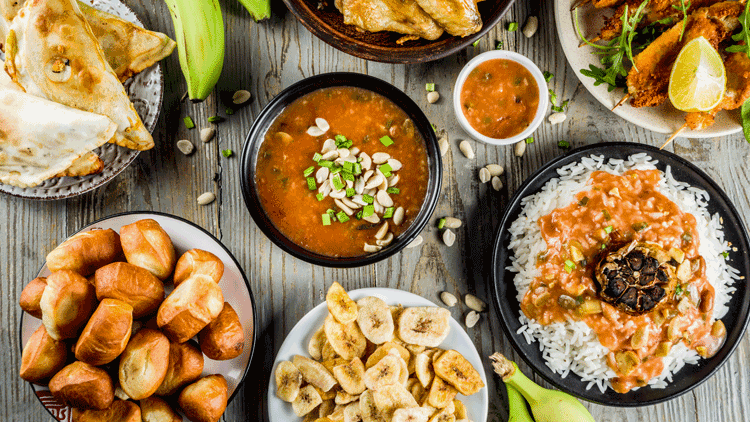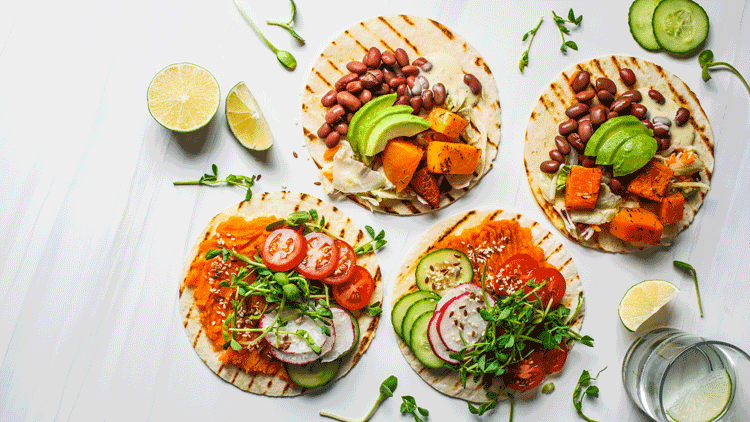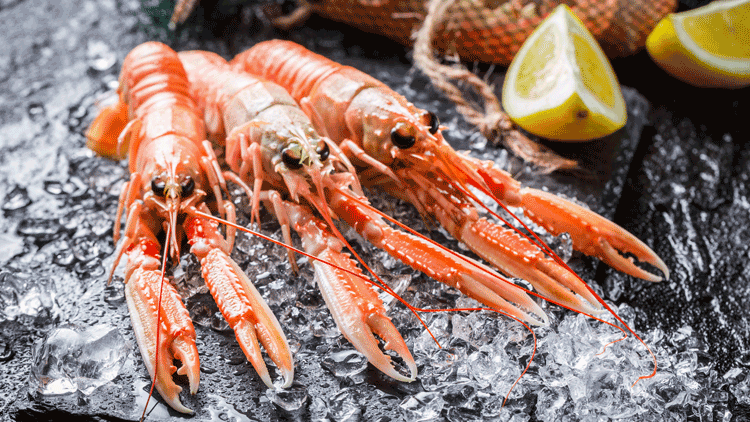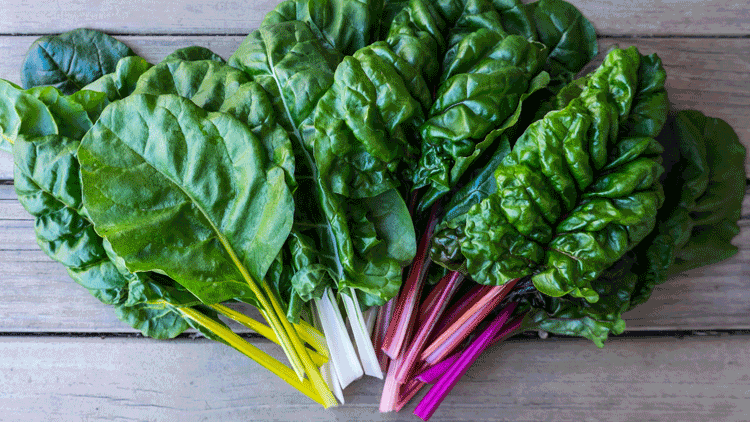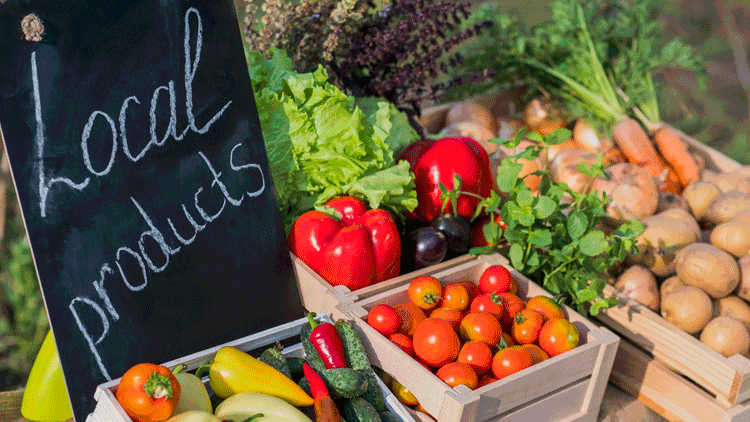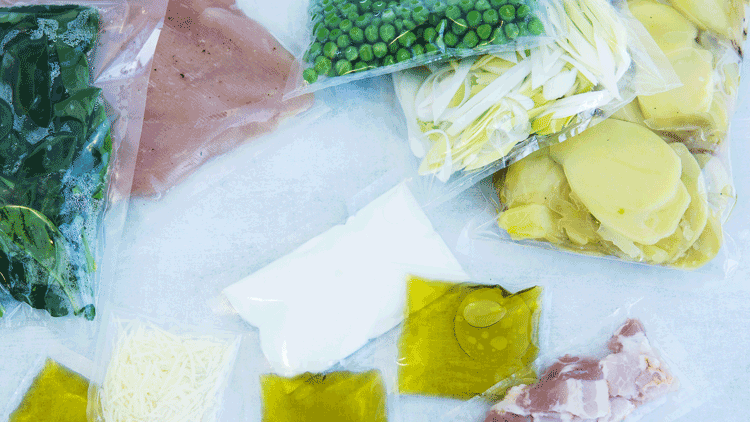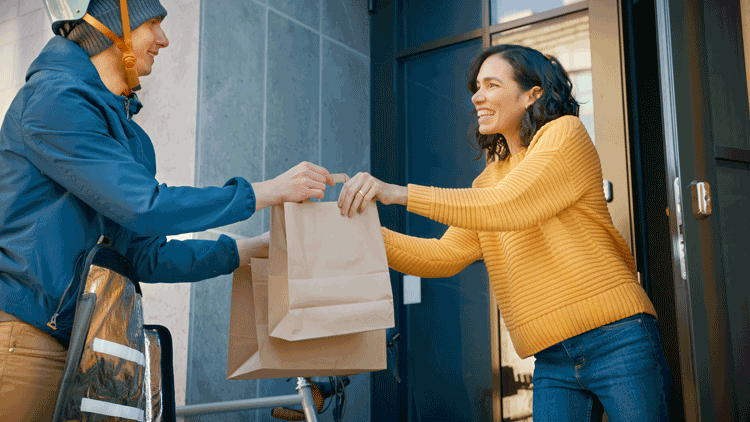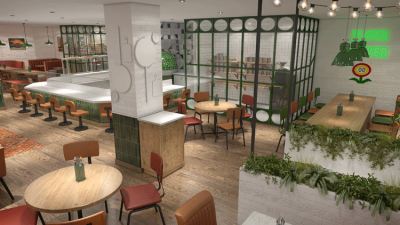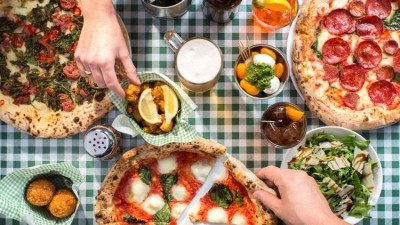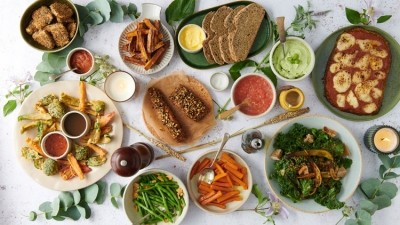Trends week
2021: restaurant and dining trends

Turnover rents
For better or worse, the impact of the pandemic is having a profound effect on the commercial property market. Since the lease forfeiture moratorium was introduced last year, tenants and landlords have been trying to negotiate new lease terms that suit both parties; often unsuccessfully - a recent study carried out by commercial property restructuring specialist Cedar Dean found that 77% of hospitality operators are currently being forced to look at restructuring or insolvency options, with current rents remaining unaffordable for the vast majority of businesses. A switch to turnover rent, which links rent payments to the turnover achieved at each site, is something many operators have pursued since the moratorium was introduced as a means of limiting liability going forward. And there’s a hope that, over time, this shift could become permanent. “Property costs (rent and rates) in central London are unsustainable,” says Chris Yates, managing director at Cafe Murano. “This crisis and the impact on high streets should lead to revision of business rate structure and the commercial lease model. Fixed rents with five yearly upward only reviews should be a thing of the past. During 2020 many sensible landlords have moved to turnover rents to support tenants and this has to be the model for the future of commercial leases.” Eroshan Meewella, co-founder of Kolamba, shares this view. “Landlords need to accept that the current rental model doesn’t work,” he says. “The move to a turnover based model is the future and has been adopted my many markets around the world. I believe most landlords will move to this.”
Neighbourhood restaurants
Restaurants located in prime, city centre, high-footfall locations will have their day again, but in the short term it is time for the neighbourhood restaurant to shine. While cities and towns have been left empty by a dearth of office workers and tourists due to the pandemic, some city suburbs and neighbourhoods have thrived as people have chosen not to venture too far from their doorsteps when eating out. With the Monday to Friday office working week unlikely to return this year, this looks likely to continue for this year at least as diners learn to love their neighbourhoods and its eating spots and the benefits that come with it (the usual table madam?). “Good neighbourhood restaurants will thrive as patterns of behaviour have changed in the past year,” predicts restaurateur Rebecca Mascherenas. “More people are using their local amenities and being able to walk rather than use public transport is a big plus.” Restaurant groups that have traditionally looked to city centre locations are also expected to take the suburbs more seriously in the coming years. “If we’re to believe that home working is a more permanent change then I would expect to see more operators take a fresh look at the suburbs for new sites,” says Cafe Murano managing director Chris Yates.
Fine dining back with a bang
A few years back there was much talk about the death of fine dining - in particular those long multi-course lunches in hushed immaculate surroundings - as time-pressed diners looked for something a bit more informal, fun and quicker when choosing a restaurant. But that was before people had been stuck indoors for vast lengths of time forced to eat their own cooking on an annoyingly regular basis. The vast array of restaurant ‘makeaway’ meals has helped but while they have given people a taste of restaurant food they haven’t managed to capture that feeling of being in a restaurant and receiving the kind of warm, attentive service that the best fine dining restaurants deliver so well. “We expect to see a resurgence of special occasion dining out,” says Bob Bob Ricard owner Leonid Shutov. “Even in the most difficult circumstances life does not stop and we all have occasions, achievements and milestones worth celebrating. And after a year of home cooking and DIY restaurant meal kits many will be looking for the much-missed dishes that they would rarely brave at home - from beef wellington to soufflés and flambés.” Never has a three-hour lunch with wine pairings seemed so attractive.
Pop ups and new concepts
Pop ups are by no means a new concept but the uncertainty that surrounds the rest of this year, twinned with the number of locations that will suddenly become available as a result of the pandemic, will likely see chefs and restaurateurs looking to do short-term projects that provide some fun as well as vital cash. “As things won’t go back to how they were for some time, if at all, we think there will be a lot of pop ups and some of these may even remain permanent as they’ve worked so well,” say Katie and Rick Toogood, founders of restaurants Prawn on the Lawn and Barnaby’s. The duo’s Prawn on the Farm pop up is making a return this summer promising to be “bigger, better and more delicious than before”. John Devitt, co-founder of Koya, also believes that access to new types of sites will open up opportunities for businesses to get their creative juices flowing this year. “Permanent changes in law such as the abolishment of Use Class A1-A3 and B1 to make way for new Use Class E are likely to have a big impact on hospitality in 2021, giving restaurants greater flexibility to move into new sites that they wouldn’t have been able to beforehand,” he says. Opportunity-wise, I think now is the time for restaurateurs to dream up new business ideas and start hustling to make them happen. Landlords will be more willing to give tenants good deals that they wouldn’t have been able to get before.” Fresh investment could also help with this, predicts Colin Clague, executive chef at Anatolian restaurant Ruya. “Some great properties will become available and if there are investors seeing the opportunity, we will witness many new ventures rising from the ashes,” he says. “After a cull, things always start to go up.”
Hybrid/flexible operations
The changed landscape post pandemic, not least short-term changes to office hours and tourism impacting on footfall, will make the prospect of launching a restaurant in 2021 quite daunting. Well, a restaurant in the traditional sense of the word in any case. This year will be about being flexible and fleet of foot in the restaurant sector so instead, we expect to see places built to adapt easily to changing customer needs and day times, whether that be restaurant by day, takeaway by night; deli/shop by day restaurant by night; breakfast service for only the first half of the week; a restaurant earlier on in the week switching to a delivery/cookery school/bar or something else. The owners of Hammersmith restaurant Sam’s Riverside, for example, launched Sam’s Larder (pictured) around the corner from the restaurant last year and have just introduced an online shopping platform for it with a ‘click and collect’ option as well as nationwide delivery. Chantelle Nicholson, meanwhile, has already expressed a desire to open a more multi-functional version of her Covent Garden restaurant Tredwells in the future and many other restaurants have added grocery elements to their offer to tap into different customer need states brought on by the pandemic and are unlikely to move away from this once lockdown lifts.
Growth of egg-focused operators
The arrival of US-based casual dining brand Eggslut in London back in 2019 courted a lot of attention, not least because of its NSFW name, which many pointed out could be perceived as derogatory or misogynistic. However, the concept, which is focused around a menu of premium, egg-based sandwiches served in brioche buns, appears to have inspired a growing trend of egg-focused operators in the capital. In the midst of the first Coronavirus lockdown last year, as Eggslut was preparing to launch its second London site in Fitzrovia, two new players entered the fold. The first, Mad Egg, which currently operates a dark kitchen site in Wood Green, is arguably the more closely aligned to US chain in its offering, which features a (free) range of egg sandwiches and burgers, alongside a ‘signature’ dish of potato purée and a coddled egg served in a glass jar that’s a dead ringer for Eggslut’s namesake dish ‘The Slut’. The second, called EggRun, originally launched too as a delivery-only brand, but is now eyeing a bricks and mortar rollout with its first permanent site set to open in Monument in March. Two further sites are expected to open in the next 12 months, with founders Laurent Manuel and Asher Grant planning to build a portfolio of up to 15 sites by 2023; although it is not known at this time whether all further EggRun locations will be concentrated in the capital.
African cuisine
Iré Hassan-Odukale and Jeremy Chan’s Ikoyi may still be place many think of when they reflect on what has become defined as the new wave of West-African restaurants in the capital, but that field is certainly growing. Last year saw a swell of new operators enter the space. On the more fast-casual end of the spectrum there was Nigerian tapas restaurant Chuku’s in Tottenham, and chef Adejoké ‘Joké’ Bakare’s Chishuru in Brixton; while more high-end players have included Akoko in Fitzrovia, and Stork in Mayfair – the latter being a pan-African venture where globetrotting dishes all have roots in the region. Crucially, while there are similarities of flavours and dishes to be found across all the menus, each offering is distinctive and unique. Aji Akokomi, founder of Akoko, believes there’s still plenty of room for new concepts in the capital’s West African restaurant space to grow. “It’s great to see people paying more attention to these sorts of restaurants,” he says. “And there’s more to come. London is a city where you can experience cuisines and dishes from all over the world, and we’ve seen a lot of brilliant supper club-concepts that are really different to anything we’ve experienced before and want to move into permanent sites. It just shows how much potential there is in this space.”
Plant-based powers on
The popularity of veganism is showing no sign of waning. According to recent research by Deliveroo, orders of plant-based dishes for delivery are up 163% on last year, with more than half a million signing up to take part in Veganuary last month. And while survey results from Veganuary 2020 revealed that eating out was one of the biggest challenges faced by participants, restaurants have done a lot in the last year to recognise and address this. Casual dining chain Wagamama, for example, has committed to making 50% of its menu meat-free by the end of the year. “We believe that vegan choices should be so delicious that everyone should want to include [them] in their lives, whether a strict vegan or someone who has never thought of themselves as a vegan before,” says Emma Woods, Wagamama CEO. Another chain looking to develop its plant-based range is Bone Daddies, which created what is believed to be London's first plant-based tonkotsu ramen for this year’s Veganuary – appropriately called ‘notkotsu’. “I’m really excited about plant-based products, and the quality of these products is getting better and better every day,” says Loic Leguay, group executive chef at Bone Daddies. “I focus on big flavours at Bone Daddies and we’re just starting to see products that can really take on the flavour depth to pair well with our food. The biggest opportunity is growth of our brands and job creation - we will leave this pandemic as a bigger company than when we entered it, which is a testament to our fantastic team & loyal guests.
British fish
While the hospitality sector continues to digest the full implications of Boris Johnson’s Brexit deal, particularly with regards to what it means for employment, one area that has already felt the weight of the country’s decision to leave the trading bloc is the UK’s fishing sector. Following the EU’s recent confirmation of an indefinite ban on the sale of live mussels, scallops, oysters, clams and cockles to member states, the future of the UK’s shellfish industry is uncertain. On top of this, delays at customs on both sides of the channel has made the export of live crab, lobsters and langoustines to the continent virtually unviable, with many companies pausing the export side of their operations to avoid their catch arriving dead and worthless. As a result, seafood suppliers are looking to ramp up interest from the British market to help plug the sales gap. Fish with traditionally ‘ugly’ monikers have been renamed to make them more consumer friendly, with megrim sole becoming Cornish sole and spider crab rebranded as Cornish King crab. Chefs have also stepped up to the plate to help support the sector, with Rick Stein’s restaurant group signing a deal to purchase seafood to include in its ‘at home’ boxes from a Welsh supplier who risked losing £48,000 worth of shellfish stuck at Portsmouth due to Brexit. Lower wholesale prices and better availability of fish stock will certainly benefit chefs looking to bolster their menus with a more robust seafood offering. However, should the seafood industry collapse as a result of the ongoing headache around EU exports, then UK chefs will subsequently find themselves faced with significant sourcing headaches.
Leafy greens and brassicas
Broccoli, kale and spinach were the vegetables du jour a few years back thanks to the trend for the green super smoothie, but this year their popularity will move beyond being blitzed for drinks. So predicts New Covent Garden Market in its annual Fruit and Vegetable Trends Report 2021, which is based on trader insights from its wholesalers, who supply London’s most fashionable restaurants – including La Gavroche, Sketch, Soho House, Jikoni, Darjeeling Kitchen and Restaurant Story. The market has seen a surge in the sale of brassicas as people look to keep themselves fit during the pandemic and predicts this consumer demand during lockdown will continue when they eat out. It also foresees that 2021 will see the rise of British radicchio which, as well as being roasted or sautéed on its own will be diced up and added as a topping to everything from tacos to eggs on toast on restaurant dishes.
Better social awareness
The Me Too movement. Black Lives Matter. The rapid degradation of our planet. Restaurant staff working excessive hours. Four issues that are now of significant public interest and have highlighted systemic problems in the industry to boot. And now the Coronavirus has thrown things into even sharper focus, highlighting both the consequences of humankind’s actions on the planet and also social injustice, with those that are worse off or marginalised disproportionately affected by the crisis. “The events of 2020 highlighted just how connected the world is, our actions have an impact on others, and we can make a difference. Diners are keen to know not just where the ingredients are from but how it has been sourced and produced, the impact on the environment and the community,” says Aji Akokomi, who founded African restaurant Akoko in Fitzrovia last year. Thanks to the work of individuals and a number of relatively new organisations things are starting to change for the better. Restaurants are starting to take their responsibilities to their people and the environment more seriously and work is being done to tackle the lack of representation for ethnic minorities in kitchens (above the rank of kitchen porter, at least). Crucially, these issues are now being openly discussed and businesses are starting to put policies in place to improve. But there’s plenty more work to do in 2021 and beyond.
Thinking more local
Like it or not, Brexit has finally happened. While major disruption has been avoided in most areas thanks to a last-minute deal, the procurement landscape has changed noticeable. Import and export of perishable produce has been disrupted forcing some buyers to switch to more reliable and potentially less expensive home-grown and home-reared alternatives. This is largely a positive, highlighting the quality of our own produce, reducing food miles and in many cases supporting the UK-based suppliers that have had their access to the European market curtailed by Brexit, not least the shellfish industry. While restaurants have become much more conscientious about local sourcing over the past decade or so, there are still many categories of product that are invariably imported. A truly modern and intelligent sourcing model to aspire to is that of Kol, a high-end Mexican restaurant that opened towards the end of last year. Chef-patron Santiago Lastra’s fresh produce is exclusively from the British Isles. Just three categories of product come from Mexico: dried chillies, chocolate and mezcal. All three have long shelf lives so can be transported by boat, which has a minimal impact on the environment. Lastra makes clever use of British ingredients to develop alternatives to Mexican staples, with sea buckthorn providing the acidity that would normally come from limes. Restaurants that really can’t do without a certain ingredient should take a leaf out of Pizza Pilgrims’ book. The 12-strong casual dining chain was importing 4.5 tonnes of basil from Europe but it’s now getting it grown in east London. It tastes better, lasts longer, uses 95% less water and has knocked 240,000 air miles out of its supply chain. The cost? Exactly the same as importing it. “Provenance and quality of ingredients will be bigger than ever, particularly with the current issues Brexit has brought and the threat of certain imports not being readily available,” says Moor Hall chef-patron Mark Birchall. “You’re going to see a focus on what’s seasonal, grown locally, and sustainable.”
Carbon footprint reduction
2020 was all set to be the year that the UK got serious about the climate crisis with restaurants poised to be in the vanguard. The UK Government set a Net Zero target and major restaurant groups including Nando’s and Pizza Hut Restaurants followed suit. But then a certain global event came along and turned everything upside down. Unfortunately, but also understandably, some plans were shelved. Despite this, the Sustainable Restaurant Association (SRA) predicts that 2021 will see restaurants large and small look to tackle the climate crisis head on. “With food production responsible for about a quarter of all greenhouse gas emissions, consumers are keener than ever before to find tasty solutions to climate change and the template is now there to follow,” says SRA acting managing director Juliane Caillouette-Noble. “We predict that 2021 will see a wholesale adoption of positive action. The beauty about these trends is that they are not only good for the planet, but also for people, and perhaps most fundamentally as we recover from Covid-19, for the bottom line.” Organic farm, restaurant and lifestyle business Daylesford has embarked on a major audit of its carbon emissions which includes understanding to what extent its organic farmland and soils can absorb carbon from the atmosphere. “This absorption not only helps improve soil health, it balances out our carbon output,” says head of sustainability Tim Field. “This initial carbon footprinting stage will lead to a product lifecycle analysis of selected items in our farm shops and restaurants so we can be completely transparent with our customers.” As the industry returns to some sort of normality over the coming months, business owners should be looking at easy wins that are either cost neutral or actually save cash. These include reducing food waste (see 4); sourcing local; ensuring kitchen equipment is energy efficient and signing up to an electricity supplier that use zero-carbon sources.
Zero tolerance of food waste
The first ever Food Waste Action Week, being run by WRAP, coming up on 1 March, could well kickstart a bigger push to keep food on the plate and out of the bin this year. According to the Sustainable Restaurant Association (SRA), restaurants are throwing away 18% of the food they buy, at a cumulative cost of £3.2bn. Three quarters of that 1.1 million tonnes of food thrown away is entirely avoidable, so if cash-strapped restaurants are looking at ways to improve margins in 2021 this is a good place to start. And with food waste accounting for 8% of greenhouse gas emission, the potential for environmental savings is also massive. The SRA predicts shorter and set menus, more pre-ordering and an increase in dishes designed to use the whole ingredient. “We anticipate restaurants placing a strong emphasis on smart, inventive ways of serving up more local, less carbon heavy dishes designed to produce minimal waste, higher returns and satisfaction to customers looking for ways to fulfill their appetite for meals that taste great and don’t cost the earth,” says the SRA’s Caillouette-Noble.
Eco-tourism
This year saw the debut of green stars in the Michelin Guide for Great Britain & Ireland. Twenty-three venues were recipients of the green clover icon, which directs diners to venues ‘preserving resources and embracing biodiversity, reducing food waste and reducing the consumption of non-renewable energy’. Combined with 2021’s focus on staycations, these new accolades are a significant boost to the UK’s growing eco-tourism sector. Palé Hall, a luxury hotel near Snowdonia, was a shoo-in for one given its commitment to sustainability across the business (initiatives include - but are certainly not limited to - a hydro-electric power system, a strict local sourcing policy and the protection of the natural habitats that surround it). Head chef Gareth Stevenson is pleased to have it on the hotel’s metaphorical mantelpiece. “A lot of people were congratulating us for getting a Michelin star rather than a green star, so I think there’s a little way to go in terms of people understanding what it means. But soon people will get it and understand the extra effort and care that has gone into what’s offered. It will be a big asset for us then.” Palé Hall is also one of a growing number of businesses to offer free electric vehicle charging points. Tempted by a new generation of vehicles that offer fast charging and much larger ranges, 2021 looks set to be the year that many make the switch to fully electrical cars, making fast charging points an essential and relatively inexpensive investment for destination restaurants, pubs and hotels.
Wednesday is the new Friday
Past contenders for the new Friday have been Thursday (why wait for the weekend?) and Sunday (why let the end of the weekend stop the fun?) but hump day has always seemed a rather unlikely contender for this title. But then Covid came along and changed the game. Every day might feel like a wet Sunday at the moment but once offices finally reopen the after work meal and drink ritual will return. However, predictions that people will be in the office for fewer days, most likely at the start of the week, are leading some to predict that the new end of the office working week - aka Wednesday - will see the biggest spike in trade in the week. Michelle McIntosh, founder of the soon-to-launch restaurant meal kits business Restaurant Box, anticipates customers frequenting restaurants early in the week and then switching to meal kits from Friday onwards. Having that ‘Wednesday feeling’ doesn’t roll off the tongue though, so some clever marketing might be needed.
Staycations are here to stay
With the Government sending out signals that holidaying abroad might not be possible this summer, all things point to 2021 being the year of Great British summer staycation, with restaurants in key holiday destinations hoping to have a much-needed bumper few months (weather permitting). Mintel predicts that Brits will spend around £7.1bn holidaying on these shores this summer – up 22% on 2019’s figure - with holidaymakers boosted by the vaccine rollout. “Demand for staycations during the summer period is expected to exceed pre-Covid-19 levels and could well reach a new 10-year record due to pent-up demand following disrupted travel plans,” says Mintel’s Marloes De Vries. “The UK holiday market will continue to benefit from cautious and price-sensitive consumers who will opt to stay closer to home. The introduction of quarantine hotels and compulsory testing for all arrivals adds another layer of uncertainty in what would normally be an important booking period. As a result, more travellers will choose to book a staycation.”
Chefs support this view. “I do think that staycations will be a big one,” says The Black Swan at Oldstead chef-patron Tommy Banks. “Not only because less people will want to travel abroad, but because people want to support the independent and local businesses.” Moor Hall’s Mark Birchall shares a similar view. “The way we travel will change in 2021,” he says. “Travelling abroad will be uncertain for much of the year with vaccine passports and other restrictions still unknown, so I feel we will see a rise in families taking their summer and winter holidays more locally.”
There's a subscription for that
The ongoing pandemic has made businesses think outside the box when it comes to bringing in extra revenue and encouraging customer loyalty and one such approach that has already proven to be successful with a number of players is that of subscription programmes. Last year Pret a Manger launched its YourPret Barista coffee subscription where customers get up to five ‘barista-prepared’ drinks each day for a fixed monthly price of £20, with 16,500 people subscribing on the day of its launch. Leon has since made a similar move with its coffee subscription, where £15 a month get subscribers unlimited coffee, and a vegan subscription that offers 30% off all Leon’s vegan dishes, drinks, coffees and cakes for £6 a month. Thanks to the likes of Netflix as well as recipe box companies such as Gousto, people are happy to sign up to monthly subscriptions and restaurants should be no exception. We expect to see more businesses get on board this year to secure some regular income while they get back on their feet.
Make way for even more makeaways
2020 was the year of the makeaway (as well as the other obvious thing) and 2021 isn’t going to be any different. In fact, this year we expect to see even more restaurants take the plunge into creating DIY meal kits buoyed by the success of their peers and their popularity for key dining occasions such as Christmas Day and Valentine’s Day. “At Home’ delivery boxes are going to continue to thrive,” predicts chef Paul Ainsworth. “Although restaurants will be back open and hopefully busy, I do think it’s a service that people just love. The likes of Tommy Banks and Sat Bains have created very special products which don’t clash with their restaurant offering.” Banks himself is not one to argue. “Food boxes are here to stay,” he says. “We are keeping Made in Oldstead going and I know lots of other chefs plan to do the same.” Recent high-profile entrants into the makeaway market, including Musette by Tom Aikens and At Home by Mark Birchall, show that while the lifting of lockdown looms ever closer chefs are seeing DIY meal kits as a more long-term opportunity. Since launching Simon Rogan at Home last year, for example, the group has delivered more than 10,000 meals nationwide, and says it will be doubling capacity this year.
More equitable delivery
Food delivery services played a crucial role for hospitality in 2020 and proved to be the saviour of many restaurant businesses. However, criticism has come from certain quarters of the restaurant industry about the commission charged by some companies and also the pay and working conditions of some of the couriers. Progress has already been made in both these ares. At the end of last year Just Eat announced it was switching to paying its couriers an hourly living wage rather than pay per job and will also pay pension contributions, holiday pay, sick pay, maternity and paternity pay, and Big Night, the independent restaurant-focused delivery platform looking to ‘radically empower’ the independent restaurant community, meanwhile, is from this month is offering nationwide delivery for the first time. Launched by The Laughing Heart owner Charlie Mellor and tech industry expert Pavel Baskakov, Big Night aims to disrupt restaurant delivery with what it believes is fairer pricing for restaurants by offering commissions of between 5% and 6.5% and charging customers a flat £1 delivery fee. Could this set a new benchmark for 2021?
